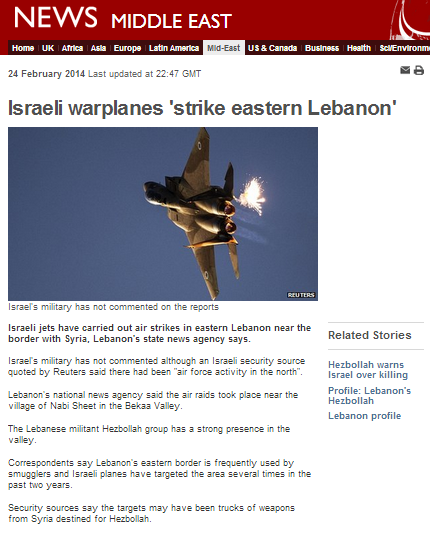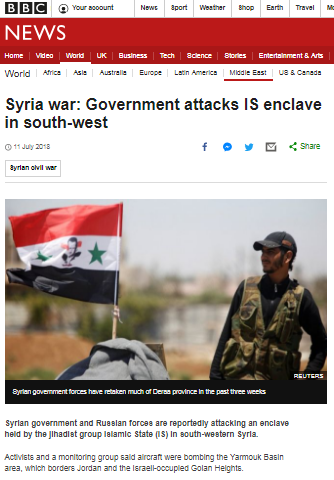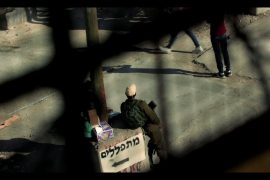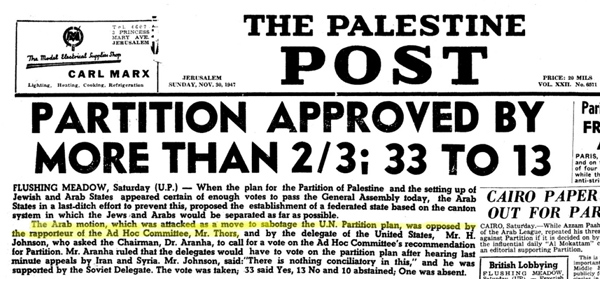On February 24th a short report titled “Israeli warplanes ‘strike eastern Lebanon’” appeared on the Middle East page of the BBC News website. 
The report relates to allegations that the Israeli air-force attacked targets in the Bekaa Valley on that evening. As is intimated by the BBC’s use of cautious punctuation in its headline and as is stated in the body of the article, those reports – which originated from a Lebanese source – remain unconfirmed.
“Israeli jets have carried out air strikes in eastern Lebanon near the border with Syria, Lebanon’s state news agency says.
Israel’s military has not commented although an Israeli security source quoted by Reuters said there had been “air force activity in the north”.
Lebanon’s national news agency said the air raids took place near the village of Nabi Sheet in the Bekaa Valley.”
Hizballah’s television station ‘Al Manar’ initially denied the reports (with the terrorist organisation only changing its stance two days later), but that information is not communicated to readers of the BBC article.
In the second half of the report the BBC ignores international designations of Hizballah as a terrorist organisation and downplays its paramilitary activities in the Bekaa Valley with coy euphemism.
“The Lebanese militant Hezbollah group has a strong presence in the valley.”
According to the ‘Daily Star’:
“…the Janta area is known to house a Hezbollah post, where recruitment and training of fighters are carried out. Janta is also a well-known route for arms smuggling between Lebanon and Syria…”
The BBC report concludes by citing unidentified “correspondents” and “security sources”:
“Correspondents say Lebanon’s eastern border is frequently used by smugglers and Israeli planes have targeted the area several times in the past two years.
Security sources say the targets may have been trucks of weapons from Syria destined for Hezbollah.”
Whilst it is certainly the case that various BBC correspondents have claimed in the past that Israel has targeted consignments of weapons en route from Syria to Hizballah in Lebanon, those correspondents actually have no verified factual evidence for their claims, not least because Israel has never officially confirmed the various allegations. Hence, this report’s transformation of conjecture based on hearsay and assumption into a categorical – rather than qualified – statement which is then communicated to BBC audiences as though it were fact, clearly breaches BBC editorial guidelines on accuracy.
As has been the case with similar past articles, this short report focuses upon alleged Israeli activities, making no attempt to provide audiences with the necessary background information to enable them to place the reports of those actions in the correct context. Mention of the UN SC resolutions banning the arming of militias in Lebanon is omitted, as is any reference to Hizballah’s status as a heavily armed terrorist organisation supplied and supported by Iran. Clearly those important omissions are not conducive to the fulfilment of the BBC’s stated remit as an organisation which builds “a global understanding of international issues”.
Related Articles:
BBC News website profile of Hizballah gets airbrushed
BBC unquestioningly promotes Assad’s “destabilisation” claims




